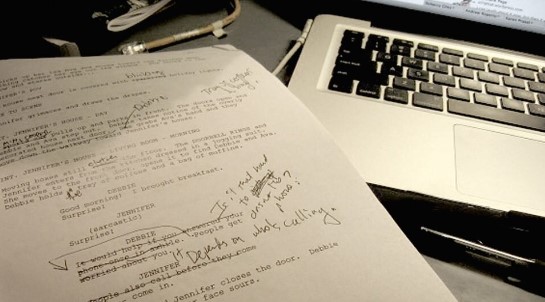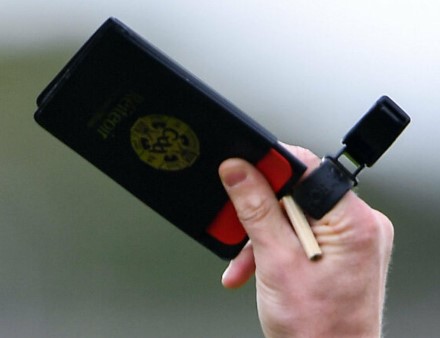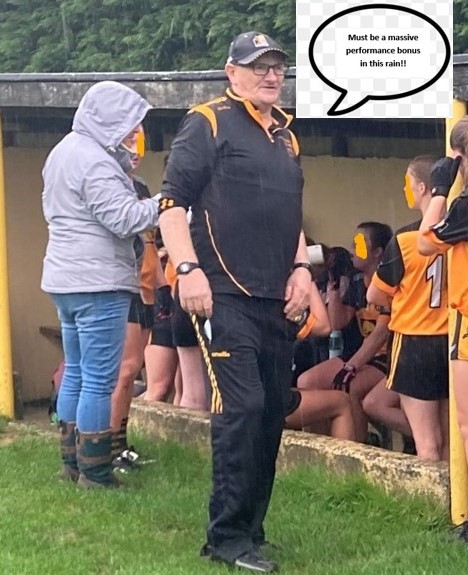Pride of the Parish! How much does it exist anymore in the GAA? Joe Brolly in a recent Irish Independent article stated that the “GAA hierarchy have allowed our game to become professional for everyone except the player”. The article goes on to suggest “only a club man could manage his club and only a county man could manage his county”. Big and bold suggestion in the present day.
Whether you agree with the infamous Joe or not, it does invite thorough consideration and what it means for the GAA, now and in the future. In doing so it is also worth remembering why the GAA was formed. It was founded on the 1st November 1884, in Hayes Hotel, Thurles by a group of spirited Irishmen who had the foresight to realise the importance of establishing a national organisation to make athletics more accessible to the masses and to revive and nurture traditional, indigenous sports and pastimes. The organisation is based around the traditional parish and county structures of Ireland. As a community-based organisation, it is often stated that it is difficult to determine where the community ends and the GAA club starts, as the two are so often intertwined. The GAA has over 2,200 clubs in all 32 counties of Ireland, not to mention the many branches all over the world catering for the Irish diaspora and non-Irish too. The principle of parish and county has served the organisation well in the main for the past 139 years.
Yes, there has always been issues about physical boundaries and yes of course people moved into areas for reasons of work and marriage in the main. However, in the past they became part of their adopted community, not just the GAA, but the community also as they were intertwined. They may have had a soft spot for the parish/county of their birth but they were proud to row in fully behind their adopted home. Their adopted Pride of the Parish. Traditionally, the elite of the game have gone to other locations to promote and nurture the games in true GAA ethos and have always been welcomed in true Irish fashion for that short interval before they return to their true parish/county. It was imperative for the growth and promotion of the games. All the above were sound principles for a community organisation to develop and flourish. The tribalism of the parish/county rule was well suited to the Irish culture and heritage.
Have we now, possibly unwittingly, reached a new juncture of decision and direction? The organisation which once proudly boasted of being amateur, now headlines with the term “professional” and not just professional in approach which in itself, has many merits in the modern world. Is it right? Once it was only the referee and the landowner that got paid. Now it’s the managers, the coaches, the S&C coach in particular, the psychologists, the doctors, the physios, the logistics co-ordinators, the kit minders, the county secretaries, the performance development officers, the gym owners, and all the ancillary stakeholders. Some of which are obviously essential. Of course, this is not true across the board that all these people get paid. Ask the Camogie, the Ladies Football, the weaker hurling and football counties, but it is a trend with more and more counties/codes following that trend. Yet, it maybe the right way to go, especially if you subscribe to the notion that the GAA is now an industry similar to horse racing. An Industry that could be sustained and provide a living to many people by taking advantage of the wonderful suite of game products the organisation provides, promotes and was founded to promote. The profits could benefit so many Irish people should the product continue to grow. Maybe the current GAA hierarchy are no different in their outlook to those spirited men of 1884 as they push the products to the next level. Maybe there is a case at the elite level, in particular, to become a genuine sports industry with profits and losses and potential liquidation and receivership should an individual business fail.
In industry, sometimes pushing the product can also damage the brand and the foundation upon which it was built. Joe Brolly’s reference to only the players not being allowed to become professional is one for which I cannot agree, but the payments are becoming more widespread and worryingly at club/parish level they continue to grow across all codes. At the moment, almost every club is paying a manager, a coach and a physio/first aid person for their main adult team. This is outside competition fees, referee fees, transport, equipment, maintenance and development of facilities to name but a few outgoings. Like all businesses, the more people get paid, the more will want to get paid and the more people will want to get paid in line with ever growing inflation. Is this sustainable at club level? I don’t think so unless the rights for streaming club matches shoots up hugely and admission prices grow to almost unattainable levels. Such moves would be in direct contrast with the reasons why the GAA was formed in the first place. Games would become less accessible to the masses. Is there even a population to support such moves, particularly in the smaller counties without a city population?
If we focus primarily on the club managers/coaches, we discover that over 90% of them come from outside the Parish, in all codes at this point. But for every one of them there is probably dozens of similar people within the club/parish who would love the opportunity and honour to take the highest manager/coaching role within their own club. However, for so many of them there will never be that opportunity. They never made it on to the circuit. They had real life jobs that didn’t allow them the time to pursue a “course” in sports development. Some may have great knowledge but lack confidence. Their club preferred to invest the coaching budget in people from outside the club/parish rather than within. They didn’t have success with an underage team in the club, so they must be useless ignoring the fact that the genuine ones focused on developing as many players as possible and giving chances to as many as possible, the masses as envisaged by the founders of the GAA. I believe that deep down the vast majority of underage coaches in a club do have ambitions to coach/manage at the highest level in their own club. They may not say it out loud, because they know they are not in the right clique, do not have the right term on the CV and such ambitions would be laughed at, in public. Nobody wants to be laughed at by their neighbour.
The mad thing is, some can go to other clubs in the same way as outsiders come to their club and get paid! Because if you pay for something it must be “very good”. What use is anything you get for “free”? This is the general attitude out there amongst growing numbers of club executives. The man/woman who comes from another club is brilliant, not withstanding the fact that their own club won’t let them next or near their own team. The gas thing is the “outsider” is primarily there for the money and their own reputation. Pride of the Parish does not come into it although it is essential for the performance. Yes, sometimes its small money and it’s just about trying to build that reputation for future roles and get your name on the circuit, which is relatively small and elite, though not necessarily in quality. I have never known an “outside” manager/coach to be heartbroken after leaving a club. They are good at the overall stage performance when they quit of their own accord in the aftermath of a championship exit. That’s part of the package, the exit performance. Some walk the minute the final whistle sounds and perform brilliantly in the dressing room aftermath to win mass empathy. Very few leave quietly with the dignity of Brian Cody**, a man who was well entitled to sing about his achievements. You can be sure they are on the lookout for a new suitor in weeks if not days. Their pride was not in the parish but in themselves. The ones that are shown the door, certainly have no Pride of the Parish. Their bitterness will be apparent when you meet them at a later stage, but not bitter as in disappointed to be gone from a dream job, but rather bitter in that the reputation has been tarnished.
The GAA is built on volunteerism. Now for more and more prestige jobs, the volunteer is no longer welcome. The volunteer upon which the success of the GAA is built. However, that same volunteer is expected to fundraise with growing amounts now being channeled into “outside expertise”. To pay for roles that they would gladly volunteer. In my experience, the most horrible part of volunteering is fundraising. Yes, sometimes the actual end event can be a magnificent social occasion. However, the organisation and time involved is not a fun pastime. Not something many like doing in the free time from their day job. More and more it doesn’t end with a great social occasion with more and more raffles and lotto being the fundraiser of choice. Is this really the pastime the volunteer wants? Fundraise in the hope that your club/parish wins the championship. No matter how many “outside” managers/coaches are brought in, only one of them can win the championship in a single year. Some clubs go decades without that elusive success at the top adult level. The reality is that every club’s ambition (should be) is to win senior (the highest level) in their county. There are only 32 of them per code in the country each year. Many clubs have never won it. Many have not won it for a long time. Many are several levels below even competing for it. However, every individual pinnacle ambition should be striving to achieve it and not how much you get for helping opponents along the way. Payments are for jobs, not a key component of enjoying “traditional, indigenous sports and pastimes”. Most of all, its is a pastime and should be enjoyed whether you are a player, a coach, an administrator or a supporter.
Joe Brolly is right in raising the subject, but his focus is not necessarily completely right. And to be pedantic Joe, it’s Games and not just a game. Games that are played by both genders, coached by both genders and administrated by both genders at all levels. The debate should not just be about the players but rather all who want to enjoy our games (the masses) but cannot because their CV is not containing the right buzz words, or their invoice does not have the right heading on the paper. Maybe there is a role for professionalism across all strands of the elite level (inter-county), but it is hard to see this genuinely existing at the lower Club levels.
Soccer or Association Football is a massively professional and monetary generating game in England. Yet there are thousands upon thousands of junior or Sunday league clubs in existence who fully rely on volunteers to survive. It is their hobby, their pastime where the vast majority dream they are playing or involved in big Premiership games, even though it might only be a local league final. Ultimately it gives them enjoyment which is fundamental for the success of any pastime. A chance to live their dream on a relative stage. If voluntary clubs are the foundation of English soccer where there is obscene wealth at the elite level, common-sense should apply in similar circumstances in our games when it comes to professionalising them at the lower levels.
The time is ripe for a discussion across the GAA structures. The horse is bolting but we (the GAA as a whole) might be able to lasso it in time. It should take place in each local club outside of AGM’s and executive committee meetings. Involve the parish. For some it will be a first step in restoring the Pride of the Parish, intertwining the community and the club to it’s maximum once again. I know there are many people with great thoughts who are too shy or lack confidence to express them to their neighbours in the Community. Club executives need to find innovative ways to untap the potentially wonderful thoughts of all in their community. Then they need to find ways to pursue and move the findings through the democratic structures of the GAA, which do exist but often are not used correctly.
Pride of the Parish. Club and community in harmony, is just as essential as it was on the 1st November 1884, when the GAA was founded at Hayes Hotel, Thurles. Let’s not forget why the GAA is…
This is a huge subject with so many angles and this article touches on some of it. All opinions are my own, but hopefully it generates the seed of thought. Primarily I’m a writer who loves the GAA, especially Kilkenny or maybe I’m a GAA person who loves to write. You can make your own mind up. If you would like to discuss this article, please feel free to leave a comment or email me at seamusdnorris@gmail.com.
** As this is my first blog in a while, I would like to take this opportunity to thank Brian Cody for the many wonderful times over the years while he was manager of the Kilkenny Senior Hurlers. Brian, you were an inspiration to us all and allowed us in Kilkenny to enjoy our pastime to the extreme level of enjoyment on so many occasions. You were a genuine and ultimate Pride of the Parish role model. I’m guessing you don’t “follow me” but hopefully somebody will pass this on.



